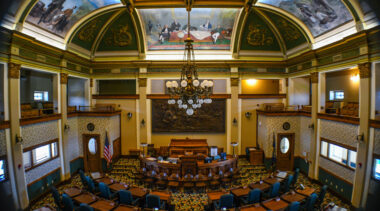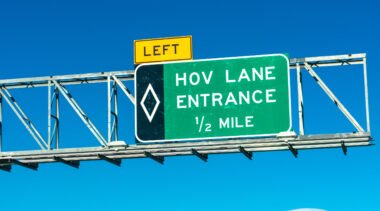-
Montana reform would improve pension funding and retirement savings for public employees
Montana House Bill 226 would adopt actuarially determined employer contributions funding to guarantee benefits are fully funded within a specified timeframe.
-
Clearing up definitions of backpack funding
Without strong funding portability mechanisms, school districts have weak financial incentives to welcome transfer students.
-
Modeling methodology and approach to analysis of public retirement systems
The Pension Integrity Project uses custom-built actuarial and employee benefit models that are tailored to reflect each unique retirement system.
-
Alaska House Bill 28 would help provide justice for those harmed by marijuana prohibition
Alaska lags behind other states when it comes to mitigating the harms done by marijuana prohibition.
-
Pension changes in House Bill 22 and Senate Bill 35 threaten Alaska’s budgets
HB 22 and SB 35 could cost Alaska upwards of $800 million in the coming decades.
-
Scrutinizing NDPERS’ cost claims on House Bill 1040
NDPERS is choosing to adopt the costliest interpretation of HB 1040 and is cherry-picking the worst from a range of actuarial cost estimates to scare away proponents.
-
Does the defined contribution plan in North Dakota’s HB 1040 meet gold standards?
Examining the the proposed contribution rate, portability, enrollment options and other retirement plan features in North Dakota's House Bill 1040.
-
Does North Dakota House Bill 1040 meet the objectives for good pension reform?
The bill would help ensure North Dakota has the ability to pay 100% of the benefits earned and accrued by active workers and retirees.
-
Examining the pension reform benefits of North Dakota House Bill 1040
HB 1040 would shift NDPERS to an actuarially sound method of funding, ensuring the state can deliver on its promises to members and retirees.
-
Protecting customer privacy in mileage-based user fee collection
Policymakers and the public have expressed concerns about road user privacy in mileage fee systems, especially those that involve a location-based component.
-
How express toll lanes benefit drivers
Today, 60 express toll lane projects across the country are providing commuters with faster and more reliable alternative to congested highway lanes.
-
HOV lanes have failed to reduce traffic congestion or emissions
Carpooling plummeted from 19.7% of commuters in 1980 to only 8.9% in 2019.
-
Steps to protect public finance from ESG activism
Public pension systems are particularly exposed to the risks associated with ESG and politically-driven investing strategies.
-
Abolishing Oklahoma’s death penalty would be good for justice and for taxpayers
Since 1981, 10 people in Oklahoma have been exonerated while on death row awaiting execution.
-
Abolishing Ohio’s death penalty would be good for justice and for taxpayers
Since 1979, 11 people in Ohio have been exonerated while on death row awaiting execution.
-
Testing mileage-based user fees as a replacement for Georgia’s gas tax
Georgia’s highways need a new, sustainable funding source.
-
How to improve transit service for today’s workers and commuters
U.S. metro areas need a new transit approach that is tailored to serving the needs of today’s workers.

















